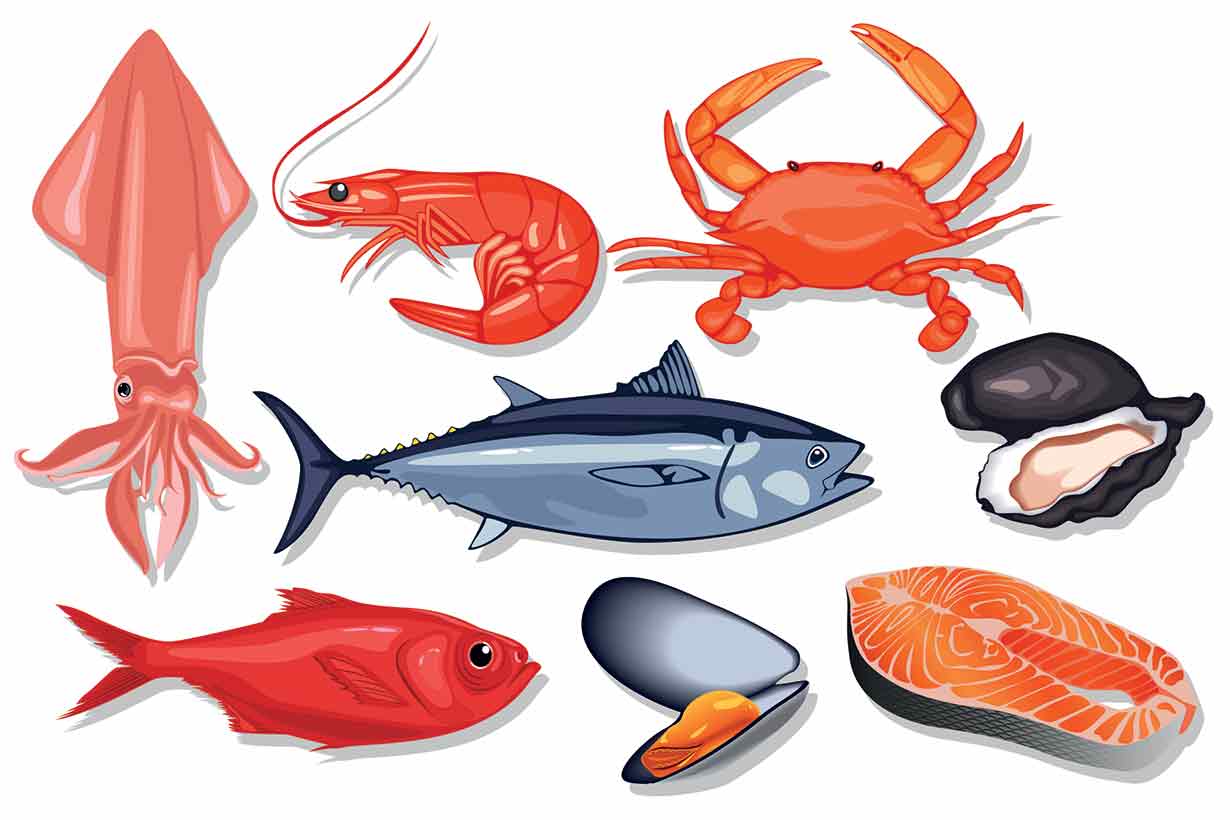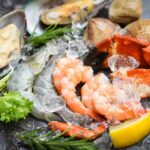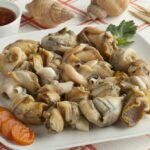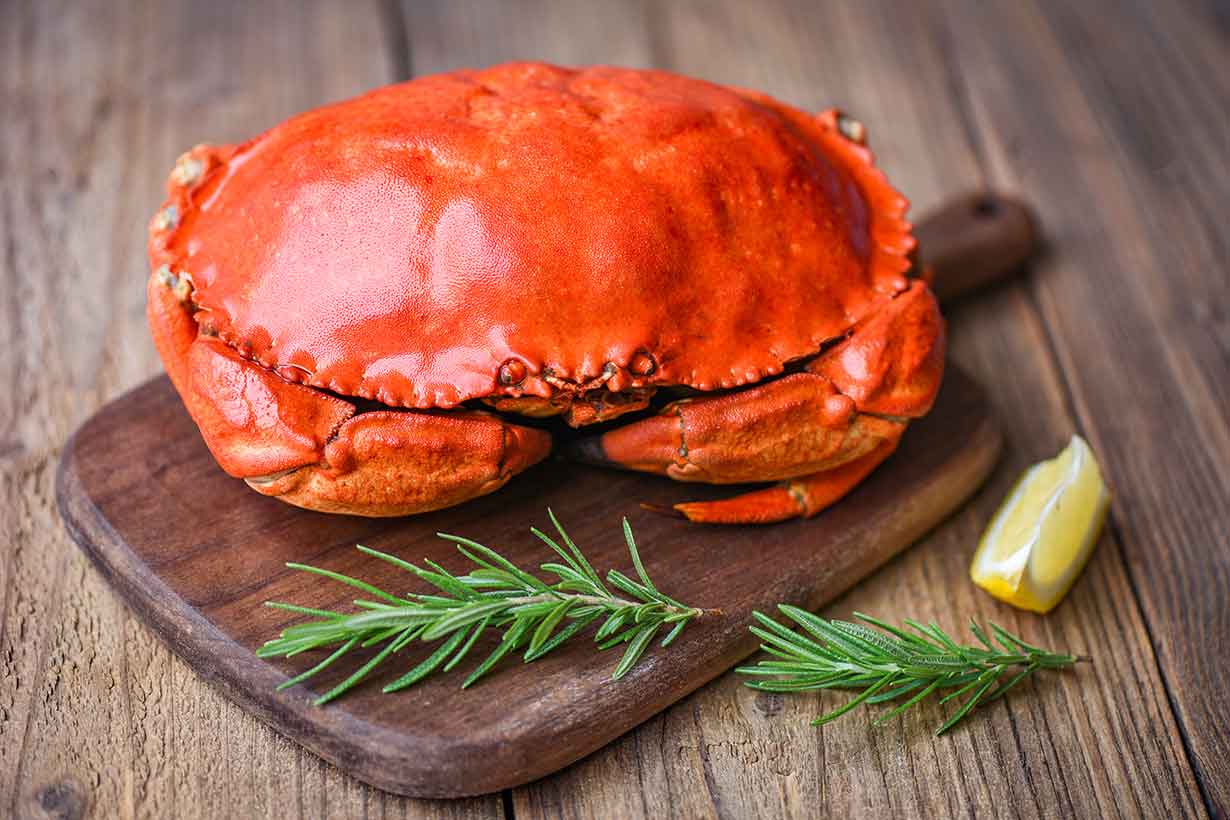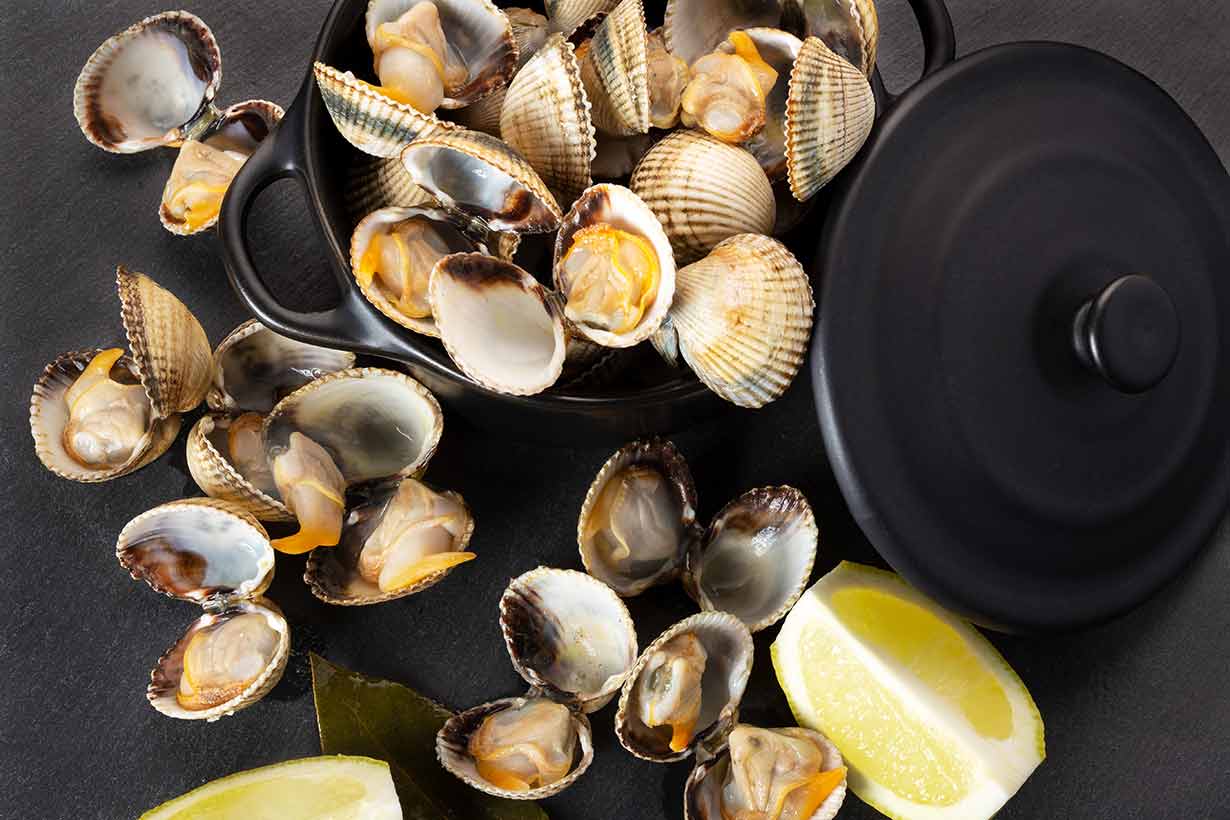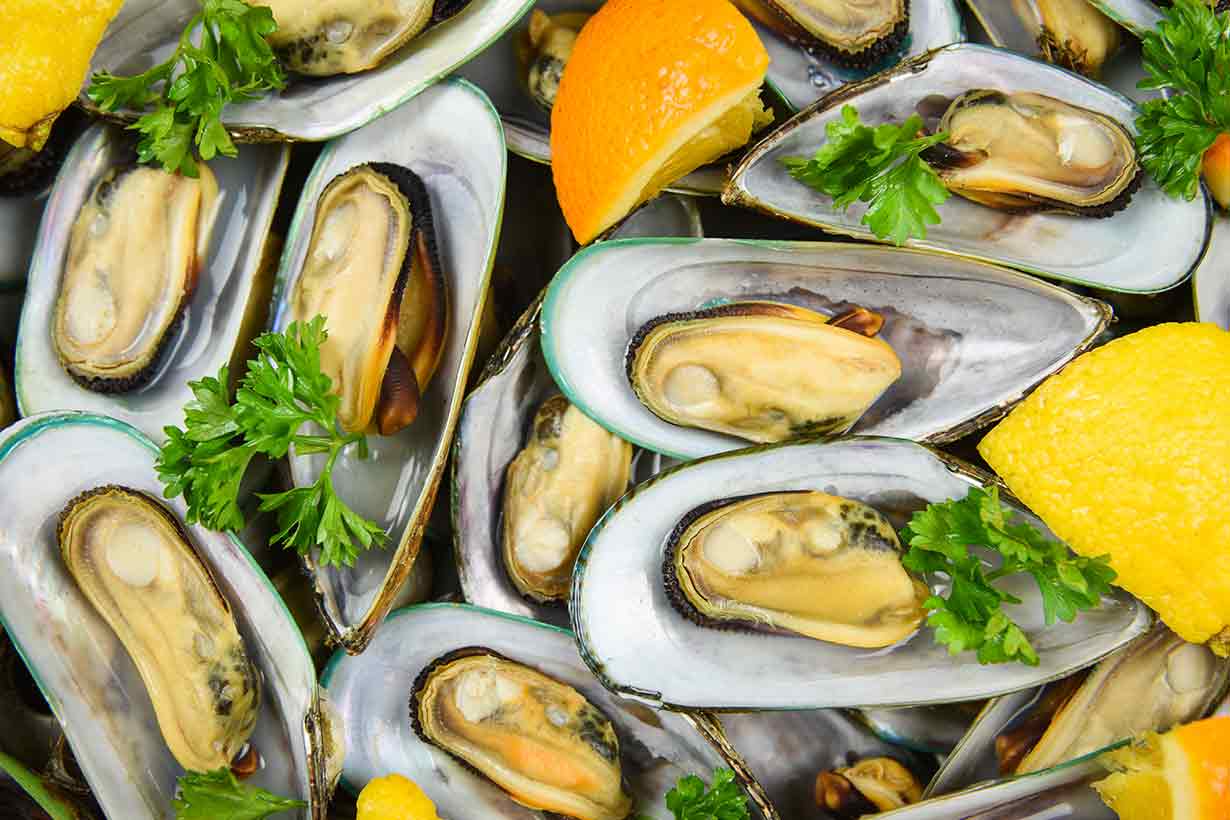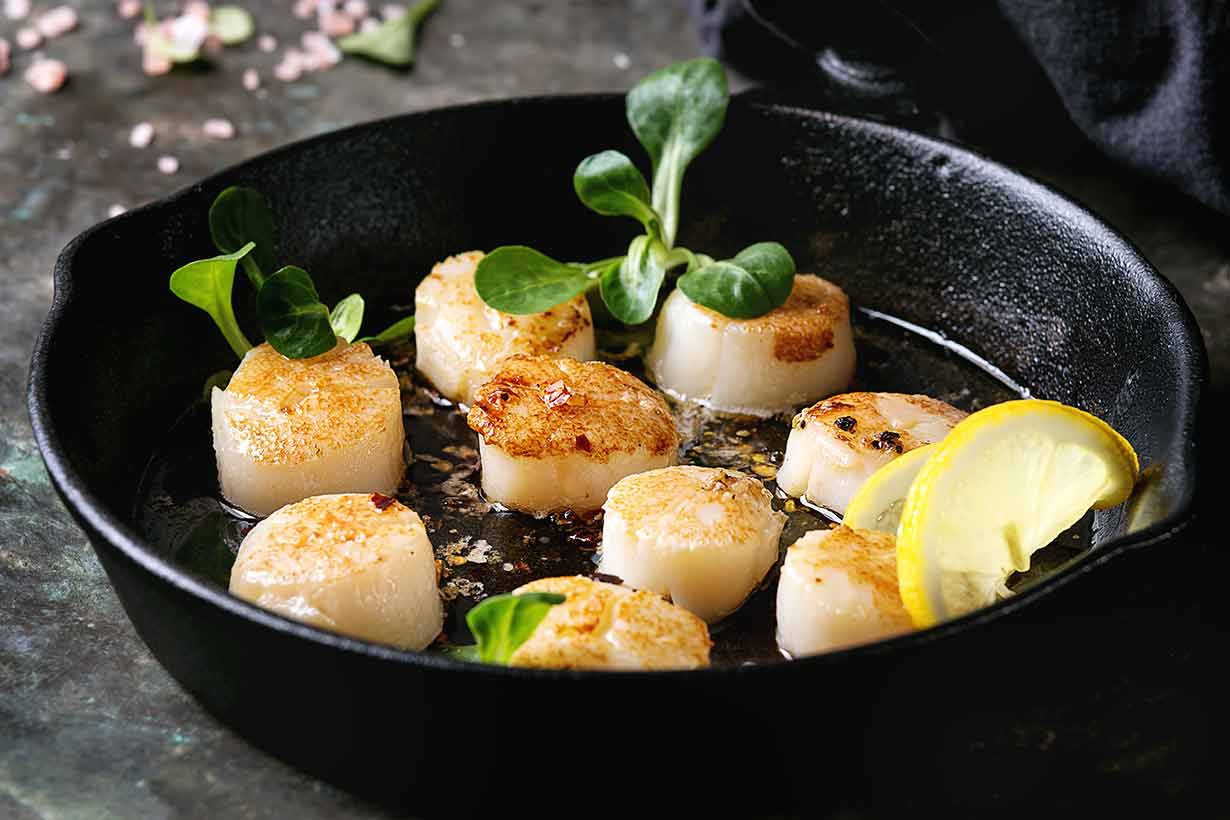The word ‘conch’ refers to several species of sea snails.
Although the popularity of conch varies from region to region, it is used as seafood worldwide.
Conch is highly nutritious and provides a broad range of essential vitamins and minerals.
This article presents a guide to conch, its nutritional benefits, and more.
Table of contents
What Is Conch?
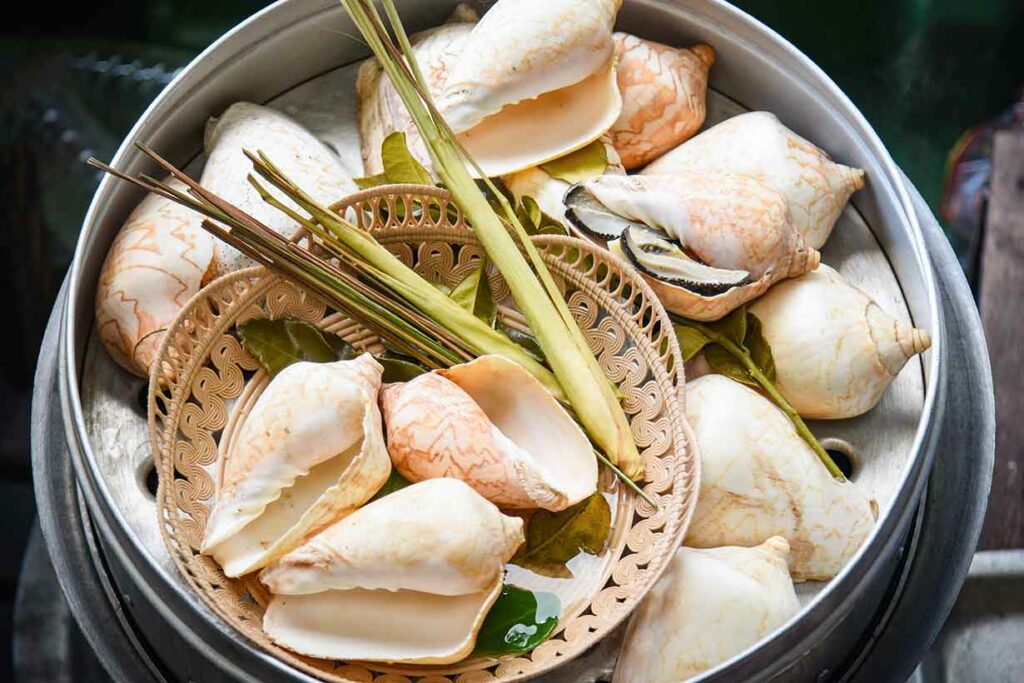
Before we look at some of the nutritional benefits of conch, let’s first examine precisely what conch is.
Conch belongs to the Gastropoda class of mollusks, otherwise referred to as ‘gastropod mollusks.’
Mollusks are one type of shellfish category that includes other popular options such as abalone, clams, cockles, mussels, and oysters.
Like many other mollusk shellfish, a hard protective outer shell provides conch with a distinctive appearance.
The word conch describes several types of sea snail, including dog conch, elephant conch, and queen conch.
Conch comes from a different family of sea snails to whelk, which is another popular edible sea snail.
Conch is particularly popular in East Asia, and China, Japan, and South Korea were three of the world’s top 5 conch exporters in 2020. Mexico and the United Kingdom were the remaining two nations among the top 5 (1).
Nutritional Benefits of Conch
As previously mentioned, conch is a nutrient-rich type of seafood. Here are some of its main nutritional benefits.
1) Conch Is an Excellent Source of Magnesium
Magnesium is an essential mineral that plays a crucial role in regulating numerous functions in the human body (2).
Most magnesium-rich foods are from plants, and it tends to be harder to find high magnesium content from animal foods.
However, this is far from the case with conch.
For instance, a 127-gram cup of cooked conch provides 302 mg of magnesium, equal to 72% of the recommended daily value (3).
2) A Single Serving of Conch Provides More Than a Day’s Worth of Vitamin B12
Although conch is a rich source of magnesium, it is an even better provider of vitamin B12.
The FDA’s recommended daily value for B12 is 2.4 mcg (4).
However, a 127-gram cup of cooked conch offers 6.67 mcg of this vital vitamin. Notably, 6.67 mcg is equivalent to 278% of the daily value (3).
Vitamin B12 plays a vital role in producing DNA and oxygen-transporting red blood cells (5).
3) High In Protein
As well as being an excellent source of vitamins and minerals, conch is also high in protein.
A 127-gram cup of cooked conch supplies 33.4 grams of protein (3).
This amount of protein is equivalent to 26.3 grams of protein on a per-100-gram basis.
4) Conch Is a Low-Calorie Food
In addition to the significant provision of nutrients that conch offers, it is also low in calories.
On this note, a 127-gram cup of cooked conch provides 165 calories. On a per-100-gram basis, this equals only 130 calories (3).
Gram for gram, this caloric content is even lower than the number of calories cooked chicken breast offers; 158 calories per 100 grams (6).
This shows that conch is a nutrient-dense food.
Furthermore, conch has a substantial protein density with 26.3 grams of protein for only 165 calories.
5) Contains a Large Amount of Selenium
Selenium is another mineral that conch provides in ample amounts.
As a mineral with substantial antioxidant properties, selenium plays a key role in the immune system (7, 8).
A 127-gram cup serving of cooked conch supplies 51.2 mcg of selenium. Since the recommended daily value is 55 mcg, the selenium in conch is equivalent to 93% of the daily value (3, 4).
6) Conch Provides More Magnesium, Iron, and Manganese Than Any Other Seafood
An interesting 2020 study analyzed the mineral content of marine products, looking at a wide range of fish and shellfish (9).
As part of the analysis, the study also identified the seafood source that provided the highest levels of each mineral.
Interestingly, conch had the highest magnesium, iron, and manganese levels out of all seafood products analyzed.
7) Rich In Vitamin E and Folate
Vitamin E is an essential, fat-soluble nutrient with antioxidant properties, and it plays an important role in the immune system (10).
However, getting enough vitamin E from dietary sources can be challenging. The main reason is that not many foods contain this essential fat-soluble vitamin.
Aside from oils and various nuts and seeds, not many other foods contain vitamin E.
Conversely, conch provides a significant amount of the mineral with 8.04 mg per cup (127-gram) serving (3).
The recommended daily value for vitamin E is 15 mg, meaning a serving of conch offers 54% of the daily value (4).
Likewise, folate is an essential nutrient that conch supplies in large amounts. Among its various functions, folate is a vital nutrient for a healthy pregnancy, and it helps prevent birth defects such as neural tube defects (11).
A cup (127-gram) serving of conch offers 227 mg of folate, equal to 57% of the daily value (3).
Full Nutrition Facts
Based on reliable data from the USDA FoodData Central nutrition database, here are the full nutritional values for a 127-gram cup of cooked conch (3).
All daily values have been calculated using the USDA data alongside the FDA’s published recommended daily values (3, 4).
| Name | Amount | % Daily Value |
|---|---|---|
| Calories | 165 kcal | |
| Carbohydrates | 2.16g | 1% DV |
| Fiber | 0g | 0% DV |
| Sugars | 0g | |
| Fat | 1.52g | 2% DV |
| Saturated | 0.47g | 2% DV |
| Monounsaturated | 0.42g | |
| Polyunsaturated | 0.35g | |
| Omega-3 | 0.15g | |
| Omega-6 | 0.06g | |
| Protein | 33.4g | 67% DV |
Vitamins
- Vitamin B12: 278% of the daily value
- Folate: 57% DV
- Vitamin E: 54% DV
- Choline: 19% DV
- Niacin (B3): 8% DV
- Riboflavin (B2): 8% DV
- Thiamin (B1): 7% DV
- Vitamin B6: 5% DV
- Vitamin A RAE: 1% DV
- Vitamin K: <1% DV
Minerals
- Selenium: 93% DV
- Magnesium: 72% DV
- Copper: 61% DV
- Phosphorus: 22% DV
- Zinc: 20% DV
- Calcium: 10% DV
- Iron: 10% DV
- Sodium: 8% DV
- Potassium: 4% DV
Does Conch Have Any Downsides?
No matter how nutritious foods are, they can still have potential downsides. The same is valid with conch.
Mollusk Shellfish Allergy
Allergy to mollusk shellfish is not as prevalent as crustacean (crab, lobster, shrimp, etc.) allergy.
However, mollusk allergy is still a (somewhat rare) possibility.
On this note, the Faculty of Biology, Medicine and Health at the University of Manchester has collated clinical data on allergy to various snail species. This data shows several case studies of allergic reactions following ingestion of sea snails/conch (12).
Anyone who suspects they may have an allergy to conch should seek advice from their medical team.
Conch Can Be Hard To Find
There are concerns about the sustainability of wild conch in some regions of the world.
For example, in Florida, USA, there is a ban on the commercial harvesting of queen conch (13).
Farmed conch is more widely available, but it is still not as common as many other seafood products.
How To Use Conch
Like most seafood, conch is a versatile food for culinary purposes.
We can consume it on its own, or it can be sliced and used in:
- Stir-fries
- Soups and stews
- Pasta and rice dishes
Some people also like to cover conch meat in breadcrumbs and fry it.
There is a wiki guide on how to prepare and cook conch here.
Additionally, here is a collection of conch recipes.
Final Thoughts
Conch is one of the least well-known seafood choices, and it is not so common in the cuisine of Western countries.
However, it is one of the most nutritionally beneficial foods, and it contains a significant range of nutrients for very few calories.

